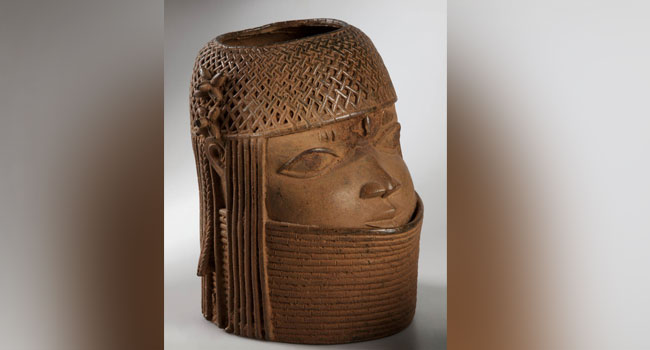
Netherlands to Return 119 Benin Bronzes to Nigeria

# The Netherlands to Return 119 Benin Bronzes to Nigeria
The Dutch government has officially agreed to return 119 Benin Bronzes to Nigeria, marking the largest single repatriation of Benin artifacts to date. These historically significant artifacts, looted by British forces in 1897, are currently housed in Dutch institutions, primarily the Wereldmuseum Leiden and the municipality of Rotterdam. The restitution marks a major step in ongoing global efforts to return looted cultural treasures to their rightful owners.
## The History of the Benin Bronzes
The Benin Bronzes are a collection of thousands of metal plaques, sculptures, and artifacts created by the Edo people of the Kingdom of Benin, now part of modern-day Nigeria. These artworks were primarily made of brass and bronze and were used to decorate the royal palace of the Oba (king) of Benin.
In 1897, British troops launched a violent raid—known as the Benin Expedition—on the kingdom, looting the royal palace and taking thousands of cultural artifacts. These treasures were subsequently sold or transferred to museums and private collectors across Europe and the United States. Since then, calls for their return have intensified, especially as European nations re-evaluate their colonial past.
## The Netherlands’ Decision to Return the Artifacts
The Nigerian National Commission for Museums and Monuments (NCMM) officially requested the repatriation of the Benin Bronzes in September 2022, following a 2021 provenance research report by the Wereldmuseum Leiden. The request was reviewed by the Dutch Colonial Collections Committee, which recommended in October 2024 that the objects be unconditionally returned.
On February 19, 2025, Dutch Minister of Education, Culture, and Science, Eppo Bruins, and NCMM Director General Olugible Holloway co-signed an agreement in Leiden for the restitution of these artifacts. Bruins highlighted the importance of the move, stating:
> “This restitution contributes to redressing a historical injustice that is still being felt today. Cultural heritage is essential for telling and living the history of a country and a community. The Benin Bronzes are indispensable to Nigeria. It is good that they are going back.”
## Where Are the Artifacts Being Returned From?
– **Wereldmuseum Leiden** – 113 pieces
– **Municipality of Rotterdam** – 6 pieces, including relief plaques, a bell, a coconut casing, and a staff
These artifacts hold profound cultural significance for Nigeria, as they are not only exceptional works of art but also essential records of the kingdom’s history, religion, and governance.
## The Global Movement for Repatriation
The return of the Benin Bronzes from the Netherlands aligns with a larger global trend in which nations are beginning to reconcile their colonial histories by repatriating looted cultural artifacts.
Several European nations have taken similar steps:
– In 2022, **Germany** signed an agreement to return more than 1,100 Benin Bronzes to Nigeria.
– The **United Kingdom** has seen some universities and museums return artifacts, though most objects remain in institutions such as the British Museum.
– In 2023, the **United States** facilitated the return of several Benin Bronzes held in American institutions.
NCMM Director General Olugible Holloway expressed gratitude to the Netherlands and urged other countries to follow suit:
> “We thank the Netherlands for their cooperation and hope this will set a good example for other nations in terms of repatriation of lost or looted antiquities.”
## Conclusion
The restitution of the 119 Benin Bronzes by the Netherlands represents a major step toward justice and cultural restoration for Nigeria. As more countries acknowledge and correct colonial wrongs, the return of looted cultural heritage continues to gain momentum.
This landmark decision underscores the importance of returning historical artifacts to their place of origin, where they can be preserved, appreciated, and serve as meaningful symbols of national and cultural identity.